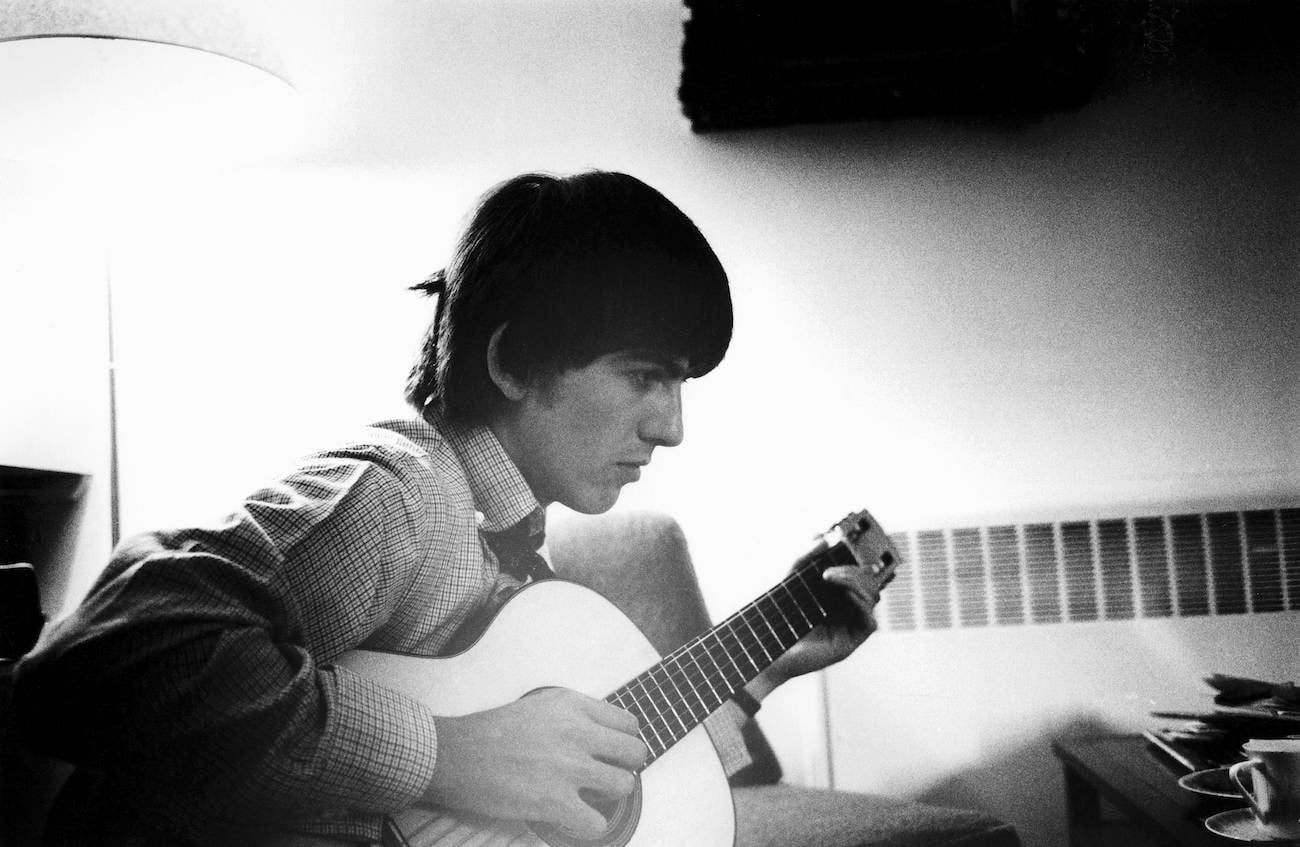
George Harrison on the ‘Tag’ the Press Gave Him When the Beatles First Came to America
When George Harrison and The Beatles first came to America, the press gave them “tags” based on their apparent personalities. John Lennon was the witty Beatle, Paul McCartney was the cute one, George the quiet one, and Ringo Starr was, well, Ringo Starr.
No labels could’ve been farther from the truth.

George Harrison on the ‘tag’ the press gave him
In 1965, George spoke with Larry Kane about the “tags” the press gave him and The Beatles when they first came to the U.S. George thought they were silly.
“On your first U.S. visit, George, you were known as the quiet Beatle, the somber, thoughtful, and pensive one, and suddenly here in 1965 you’ve kind of, according to most people’s way of thinking, opened up,” Kane said. “You’re talking a lot at the press conferences, a lot of questions are directed at you. What’s the reason for all of that?”
George replied, “Actually, I did talk about the same amount on the last tour. It’s just that, you know, first of all, when we first came over here they didn’t know us all that well. People, like, hang tags on you.
“Ringo was the cuddly one or something. Paul was the lovely one and I was the quiet one, and John was the shouting one. I’ve been the same all along. I talk when I feel like it. I shut up when I don’t feel like talking.”
George was the quiet Beatle because the press were scared of him
Radio personality Cousin Brucie, a.k.a. Bruce Morrow, had an interesting theory about why he and the rest of the media labeled George as the quiet Beatle.
In Joshua M. Greene’s Here Comes The Sun: The Spiritual And Musical Journey Of George Harrison, Cousin Brucie said, “Some people might look at him and think he was disassociated, that his head was somewhere else, but he struck me as even more present than the others, watching from within and absorbing and thinking about what was going on. He was very aware of his surroundings, planning ahead. He just wasn’t verbal about it.”
Cousin Brucie explained it was easier for journalists to think George was just a quiet person than to understand his real personality. Deep down, they may have understood, but George’s demeanor scared them. They also thought he’d say something too serious and produce dead air.
“I remember interviewing them, and in those days, honestly, George wasn’t the most exciting Beatle,” Cousin Brucie explained. “As a journalist, you’d go after John or Paul or Ringo. George’s introspection made us afraid of getting too much of the mortal sin for a broadcaster, namely dead air.”
Cousin Brucie wishes he and other journalists gave George a chance to be himself. “But in retrospect, that was very wrong,” he said. “I think now that if we had given George the courtesy and respect he deserved, his whole persona might have changed. But none of us did that. It was the other three who got 90 percent of the action.
“When he was interviewed, George was always direct, never flowery with his words. He answered succinctly. If he could answer in two sentences, he never made it into a paragraph. He had kind eyes. When you spoke with him, he looked directly at you. You knew there was sensitivity at work.”
The former Beatle called the media ‘dummies’
George and the press didn’t ever have a good relationship, even after The Beatles broke up. When George craved privacy, they invaded it every time. They made up stories about his relationships, life, and health, especially in his last months.
The press also continued to misinterpret him. They thought he was a recluse, but he just didn’t go where they hung out. On being quiet, George’s friends and family can attest to how loud he could be. “He never shut up,” his friend Tom Petty said.
According to NBC, George once said, “The press are such dummies, generally speaking… There are some great writers that do a useful job. But the whole thing is to sell a paper with some stupid headline. My image comes across like I’m some weird old mystical ex-Beatle.”
Unfortunately, George never stopped being known as the quiet Beatle. However, if people got to know him more, they’d realize that that label was the farthest from the truth.


